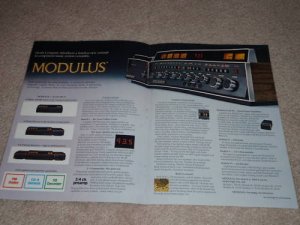http://www.eetimes.com/discussion/b...t-returns-?cid=NL_Embedded&Ecosystem=embedded
http://www.heathkit.com/
Awwww yeah!
Heathkit, the fabled electronics kits company, is going back into that business after a two-decade hiatus.
http://www.heathkit.com/
We will be releasing Garage Parking Assistant kit (GPA-100) in late September and soon after the Wireless Swimming Pool Monitor kit will be available.
Based on your input, we are looking at developing amateur radio kits. Our goal is to have kits available by the end of year.
Awwww yeah!

![Thinking [thinking] [thinking]](/xen/styles/default/xenforo/smilies.vb/010.gif)
